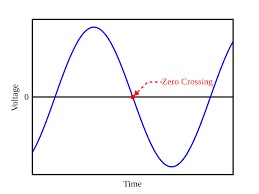Bruce,
What correlation exists, if any, between the width of the parallel lines in the middle image and 'zero crossings'
As you'd observed in a later post, only DSP 3 appears to mimic the original.
Thanks.
Bruce,
What correlation exists, if any, between the width of the parallel lines in the middle image and 'zero crossings'
As you'd observed in a later post, only DSP 3 appears to mimic the original.
Thanks.

I've done a number of tests of FLAC and also have always come up with identical files, whether using md5, ffp or File Compare for analysis, even when the WAV>FLAC>WAV conversion is performed 100 times. Others have done this and had similar results even when the conversion was performed 1000 time or more.
What's more germane to this topics OP is well illustrated by one of HDTracks new offerings this week: Jethro Tull's Aqualung, remixed by Steven Wilson in 2011 and released on Bluray. It turns out that the Bluray had an additional mastering step(s) after SW's remix, resulting in about 3 dB lost dynamic range off the peaks!! The new HDTracks offers the "true" remix without the additional "mastering" (i.e., compression); unfortunately, only the original album is so offered, not the bonus tracks from the 2011 Bluray.
Hi Tony,
1. The files were delivered to Naxos in 2 formats, DSD64fs (as .dff) files and 176.4 FLAC files.
2. I agree, but why would they do that? I was getting files smaller AND LARGER than what I sent.
3. The meta-data may have been different... but not over 100MB different! I can see a few (1-3MB) difference because of artwork or something.
4. The audio samples WERE different on 2 examples as shown.
5. Still can't account for one of the tracks to actually be corrupted (a couple of silent places), unless they somehow manipulated the data.
I can certainly send you all the file data that I downloaded and let you compare them.
Page was involved in both "remasters", one with George Marino in the '90's and the most recent ones with John Davis. Barry has always said his are "flat" transfers. Unfortunately, The Absolute Sound frequently just can't be believed, and unless one already knows differently there's often no easy way to tell.
I applied EQ but in retrospect, not enough. If I did them again today, my approach would still be exactly the same but I'd be more liberal about the application of EQ. (As always, the dynamics of the source are left intact 100%. No compression or limiting is allowed in the room. ;-})





...
Example: your LZ3 CD, only 1 instance of clipping exist on the entire CD. (celebration day)...
View attachment 20913...
Hi TBone,
It will probably be difficult for most folks today to grok but the meters on the Sony 1630--or was this back with the 1610?--did *not* have a peak hold. (Actually, as it has been a bunch of decades, perhaps I'm not remembering correctly. If they did have a peak hold, the resolution was still nothing like what we have today.)
I had to keep my eyes on the meters for the duration of the album!
I must have blinked.
Hehehe ... that's funny ... missed the days of graceful tape saturation ...
That's one of the advantages of recording in DSD; +6dB of headroom. It's not like tape saturation, which I don't believe is all that graceful, but is the difference between 50% modulation (established as 0dB in the early development stages of DSD/SACD), and 100% modulation (+6dB). The distortion and modulation artifacts increase markedly as 100% modulation is approached, but for short music transients, is not perceivable.
Hehehe ... that's funny ... missed the days of graceful tape saturation ... when I first recorded to digital I used a recorder w/non-peak average type meters, they ended up being so slow as to be near useless. When recording everything looked fine, after, all my peaks would be clipped (arghh).
Anyway, thanks for your time and effort with these early recordings, as someone who has a pretty decent collection of LZ pressings, I can honestly say it's been difficult finding really open good sounding non-compressed LZ copies. Another example, I have two Bob Marley Greatest Hits LP/CDs, the version you mastered, which sound stellar on both LP & CD, the other versions are just more examples of limiting/compression.
Hi TBone,
Do you mean "Legend" and "Rebel Music"?
I had a great time mastering the 13 original Marley albums for CD. (As always, no compression or limiting was allowed in the room.)
Did they credit me on the vinyl too? While I've done vinyl mastering too, I did not master any Marley vinyl. Perhaps they used the CD masters when they cut the vinyl. I don't know who did the cut though.
Hi TBone,
Do you mean "Legend" and "Rebel Music"?
I had a great time mastering the 13 original Marley albums for CD. (As always, no compression or limiting was allowed in the room.)
Did they credit me on the vinyl too? While I've done vinyl mastering too, I did not master any Marley vinyl. Perhaps they used the CD masters when they cut the vinyl. I don't know who did the cut though.
Best regards,
Barry
www.soundkeeperrecordings.com
www.soundkeeperrecordings.wordpress.com
www.barrydiamentaudio.com
Barry, the Marley catalog you remastered were the first really, really good sounding CDs I purchased. I went in hard and heavy after that. I was sold.
Thanks for being one of those pros who help set the standard going forward, along with folks like Dan Hirsch, Vic Anesin, Suha Gur, Bill Inglot, Bob Ludwig, and others.
Barry, in the past at SH Forums you have recommended recording with peaks at -6 dB; is that still your practice?
| Steve Williams Site Founder | Site Owner | Administrator | Ron Resnick Site Owner | Administrator | Julian (The Fixer) Website Build | Marketing Managersing |

